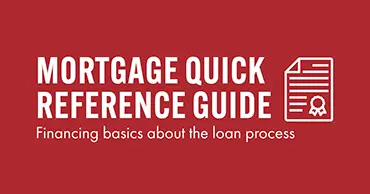For those who are still renting (or living with relatives), purchasing a home may seem like a formidable challenge. High interest rates, hefty down payments, lack of education about the homebuying process and other obstacles can prevent would-be buyers from taking that step. Luckily, today’s housing market offers incentives and assistance for potential first-time home buyers. With many current homeowners reluctant to leave their low interest rates behind, new buyers become the prime candidates for available inventory and it makes sense to give them reasons to buy.
Do your prospects and clients understand what is considered a first-time home buyer and what programs/incentives are out there? Use this article to help educate your customers on the resources that may be available to them—maybe gaining additional trust and goodwill in the process!
What are the benefits of homeownership?
If you have prospective clients who may be on the fence about becoming a first-time buyer, it’s important that they first understand the potential advantages of owning a home. These can include:
- Stable housing costs
- Equity building
- Tax benefits
- Flexibility and freedom
What is considered a first-time home buyer?
Your clients may not know that they can qualify as a first-timer, even if they’ve owned property in the past. According to the U.S. Department of Housing and Urban Development (HUD), a first-time home buyer can be:
- Someone who has not owned a principal residence for the last three years before purchasing a new home
- A single parent who has only owned a principal residence with their spouse while married
- Someone who has only owned a principal residence “not permanently affixed to a permanent foundation in accordance with applicable regulations,” which can include mobile homes
- Someone who owns property that isn’t in compliance with building codes and can’t be brought into compliance
What types of assistance are available?
First-time home buyer help can include (but aren’t necessarily limited to):
- Down payment assistance
- Low down payment requirements
- Federal programs
- Local or state-sponsored programs
- Education courses
- Interest rate reductions
- Grants
- Tax credits
Of course, it’s important for your clients to remember that the benefits available to them will vary depending on their location, current financial situation and other requirements.
Do first-time home buyers need a down payment?
There are some loan programs that may require little to no down payment from first-time buyers. Federally-backed FHA loans, though not exclusively for first-time buyers, can be particularly relevant to new house hunters, as qualified applicants may only need as little as a 3.5% down payment. Rural buyers may be able to put 0% down if they meet the requirements to secure USDA loan, available in select areas.
Another option may be a low-down payment Conventional loan, such as the HomeReady® mortgage from Fannie Mae. This program offers a 3% minimum down payment, as well as cancellable mortgage insurance and greater flexibility in fund sources. However, HomeReady® does require buyers to take a free homebuyer education course in order to qualify.
Additional programs might include down payment assistance in the form of loans, grants or Individual Development Accounts, which are savings accounts where buyer contributions may be matched by private or public entities for the purpose of a down payment.
How does a first-time buyer qualify for benefits?
Besides meeting the definition of a first-time home buyer, a client will likely need to meet other requirements for approval, which vary by location and the type of program. Qualifiers can involve the buyer’s income, occupation or credit score, or even the price of the home. Each state may have its own home buying assistance programs and related approval requirements, so be sure to educate your clients on what’s offered in their area.
What additional resources are out there?
As mentioned above, there are numerous homebuyer education and counseling services available that can benefit new buyers. These programs are often free or low-cost and may provide valuable information to your clients. Online educational materials are also plentiful—for example, we offer a range of complimentary homebuyer guides on our website that cover topics from buying a home on a quick timeline to FAQs about insurance.
First-timers should also be on the lookout for interest rate offers and other financial incentives. Our affiliate lender, HomeAmerican Mortgage Corporation (see licensing info), helps both new and experienced buyers save thousands through special financing and closing cost assistance when they purchase a new Richmond American home.
For low-income buyers, a number of nonprofit organizations provide a path to homeownership through low-rate mortgages, zero down payment loans, work programs and more.
If you have a client that’s ready to take that step, HomeAmerican Mortgage Corporation’s experienced loan officers are here to help answer any questions and point them toward the best options. House hunters can call 866.400.7126 or begin the process by filling out an application online.
More to share:
- Creative Ways to Save Money for a Down Payment
- Mortgage Infographic: Get Your Credit Ready Before You Apply
- How to Choose Financing Options: A Mortgage Infographic
- Five Financial Wellness Tips to Help you Land your Dream Home in 2024
Clients confused by the mortgage process?
Send them a link to our free guide! It offers an overview of the loan process, plus tools to keep buyers organized through closing day.





